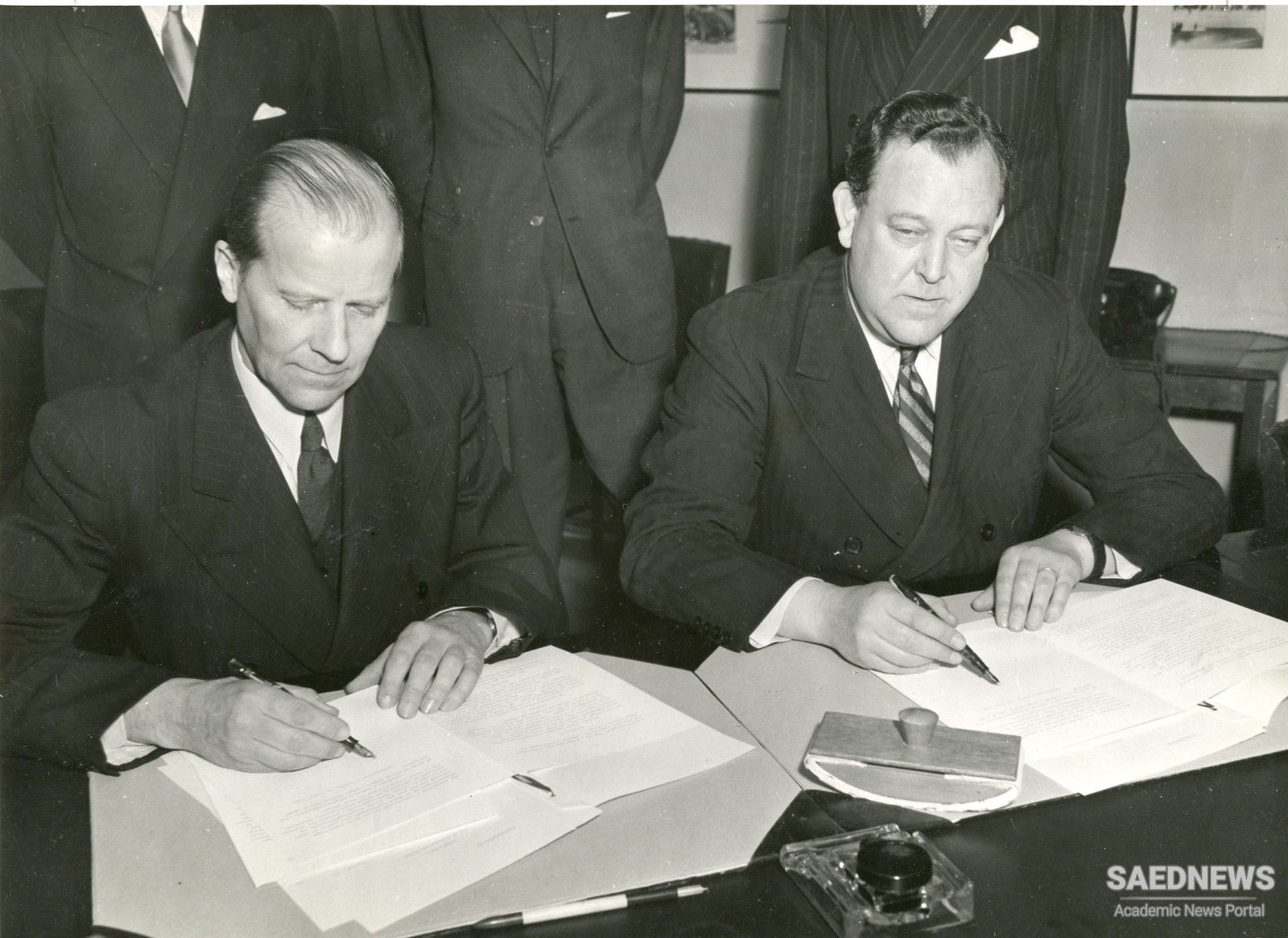There would then be another normal session in the following September. Soon after the first session began, however, it was decided not to hold any meeting in the spring. There would be simply one meeting in September, which would become the second part of the 1946 session. The first meeting of the Assembly was held in Central Hall, Westminster, on 10 January 1946. Almost its first act was to elect a president for the session. This proved a controversial matter. As soon as the proceedings began, Gromyko, the Soviet chief delegate, strode to the rostrum and declared immediately that he favoured the election of the Norwegian Foreign Minister, Trygve Lie, as president. Lie had once been the US candidate for president, having been approached by Stettinius the previous August, and again by Stevenson, the US delegate to the Preparatory Commission in December. A day or two before the Assembly session began, however, the United States withdrew its support for him, and transferred it to Spaak, the Belgian Foreign Minister, a staunchly pro-Western and anti-communist statesman, who was also supported by Britain and other countries.
Spaak was, however, by no means acceptable to the Soviet Union, because of his robustly uncompromising political views. The Russians, alarmed at the nomination, were eventually able at the last minute, to persuade the US delegation to revert to their support for Lie. Thus the Ukrainian delegate, supporting Gromyko, proposed that Lie should be elected by acclamation without a ballot. This was turned down by the Assembly. The US delegation, now in two minds, made no declaration of its support for Lie. Thus in the event Spaak, despite strong Soviet opposition, was elected president by 28 votes to 23. This was generally regarded as a considerable political defeat for the Russians, who were known to dislike Spaak. The whole affair lent an ominous tone to the first day's proceedings of the Assembly.
Far more important was the election of the organisation's secretary-general which was to follow. This had been discussed informally for some time. In this case the veto operated, so the first essential was that the candidate should be acceptable to all the permanent members. Many names had been tentatively discussed, ranging from Anthony Eden to General Eisenhower. It came, however, to be generally agreed that the post should not go to a national of one of the major powers. The US Government actively discouraged suggestions of an American secretary-general, especially after the United States had been selected as the site of the organisation's headquarters.
Instead the first choice of the United States became Lester Pearson of Canada. He, however, was regarded by the Russians as too pro-Western. They countered by proposing a Yugoslav, Simic, previously a member of the Yugoslav government-in-exile, but now Foreign Minister in Tito's government. He, as the Russians must have known, was equally unacceptable to the United States and other Western countries. A number of other names were mentioned, including van Kleffens of the Netherlands, and Rzymoski of Poland.


 The Setting up of the New International Organization
The Setting up of the New International Organization














































